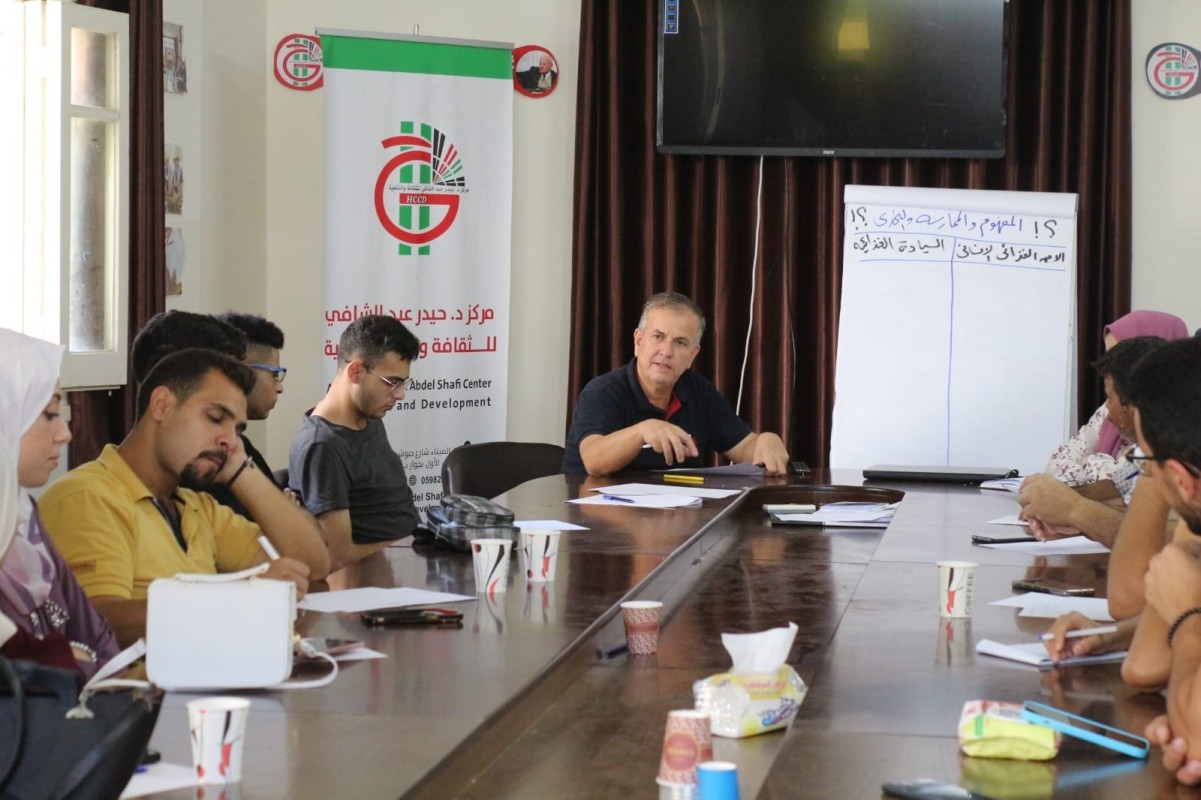The Dr. Haidar Abdel Shafi Center for Culture and Development holds a seminar on the approach to food sovereignty and humanitarian food security.
The Dr. Haidar Abdel Shafi Center for Culture and Development organized a dialogue seminar on the approach to food sovereignty and the humanitarian food security strategy at its headquarters in Gaza City. The event hosted Mr. Ahmed al-Sourani, the director of the Urban Agriculture Foundation in the Gaza Strip.
The seminar commenced with a welcoming speech from the center's director, Mr. Mohsen Abu Ramadan, conducted via Zoom, welcoming the guest speaker Mr. Ahmed al-Sourani and the esteemed attendees. He emphasized Mr. Ahmed's role in various fields of civilizational, rural, and agricultural development, drawing from his expertise in civil society institutions.
Mr. Abu Ramadan pointed out that this seminar is part of the center's strategic plan developed in collaboration with the general assembly and some friends of the center. He noted that the seminar will focus on the relationship between food sovereignty and food security, highlighting that food security cannot be achieved without controlling resources and wealth and how to invest them as part of the people's right to self-determination. He cited international reports affirming that food insecurity is attributable to occupation, settlement, siege, and the deprivation of the Palestinian people from controlling their resources.
Mr. Ahmed al-Sourani discussed the concept of food security, which is essentially about "providing food" without delving into the means and capabilities of providing it, which is the main challenge. He elaborated that the concept of food security emerged in the literature of international institutions as a substitute for the concept of "self-sufficiency" associated with waves of national liberation, which prioritized achieving local self-sufficiency in food as part of their liberation aspirations and self-building endeavors.
The concept of food security excludes the obligatory responsibility of local production in meeting essential food needs. Instead, it suggests that importing foodstuffs should compensate for local production tasks. In other words, the concept of food security proposes that a country does not need to produce its basic food needs as long as it ensures their sufficient import from other countries.
He also discussed the concept of food sovereignty, which was defined in 1996 by the Via Campesina movement during the Food Summit organized by the Food and Agriculture Organization (FAO). The definition highlights the right of peoples to adopt a healthy, cultural, and appropriate dietary system produced through sustainable methods.
Participants emphasized that food security is a fundamental human right that must be ensured for every individual. They called for intensive discussions on food security and food sovereignty, stressing the importance of addressing the laws and treaties related to both concepts and not limiting the discussion to food security without linking it to the concept of food sovereignty.
This seminar is part of the center's efforts to develop its strategic plan and implement related activities.




Add New Comment